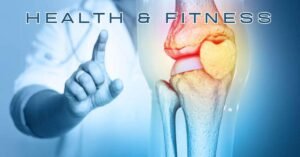Essential Vitamins and Minerals
Good health is more than just exercise and nutrition. It also requires ensuring that you take the Vitamins and minerals necessary to fuel every cell, tissue, or organ of the body. These micronutrients are essential to maintaining the good health of your immune system, energy, and brain. Perhaps it is helpful now to look specifically at why Vitamins and Minerals are so critical, why they are supplemented, and where they might be found, or not found, in the food supply.
What are Vitamins and Minerals?
Vitamins and Minerals are another class of nutrients necessary for the body in small quantities, playing a crucial role in many physiological activities within the body. Vitamins are substances that are soluble in water, easily oxidized by heat, light, or air, and decomposable by chemical reagents, such as acids, while minerals are insoluble in water, non-hydroscopic, and remain intact in high temperatures or an acid solution. They both include vitamins that the body cannot synthesize sufficiently and must be produced through the foods that one takes.

What Are The Uses of Vitamins and Minerals?
Vitamins and Minerals vary in function, and some of them have specific functions in the body, such as immunity, energy production, among others. For instance, Vitamin C acts as a repairer of tissues and modulator of the immune system Vfuision as well as calcium, which is crucial in the construction of bones. Lack of these nutrients will cause diseases that affect the human mind, body organs, and overall system.
In the following sections, you will find information about key vitamins: Vitamin A and its benefits, Vitamin B and its benefits, Vitamin C and its benefits, Vitamin D and its benefits, Vitamin E and its benefits
Vitamin A: Promotes eye health, immunity, and skin care.
Sources: Of these, carrots, sweet potatoes, spinach, and liver should be included in the diet.
B Vitamins (B1, B2, B3, B5, B6, B7, B9, B12): Altogether, these vitamins help to support energy metabolism, cognitive function, and Red Blood Cell synthesis.
Sources: Rice, beans and whole grain products, eggs, meat and products derived from it, and green leafy vegetables and products derived from such.
Vitamin C: It has been used to help build the immune system and to aid in the formation of collagen.
Sources: Lemons, oranges, strawberries, peppers, and broccoli.
Vitamin D: Good for the bones, it enables the body to absorb calcium properly.
Sources: Vitamin D can be found in sunlight, fortified Dairy products, fatty fish, and egg yolk.
Vitamin E: It can function as an antioxidant that helps to shield the cells against harm.
Sources: Nuts and seeds, and green veggies, and nuts and seeds.
Vitamin K: Indispensable for coagulation and bone-maintaining processes.
Sources: Greens such as kale, spinach, broccoli, and any type of fermented product.
Essential Minerals and Their Uses
Calcium: This can help with the building and maintenance of strong bones and teeth. This nutrient is also good for nerve health.
Sources: Milk, spinach, nuts, and soybean products.
Iron: Essential for the transport of oxygen in the blood and energy metabolism.
Sources: Beef, pork, lamb, sheep; lentils; beans; and fortified cereals.
Magnesium: Known to boost muscular and neural functioning and acts as a source of energy.
Sources: Chocolate, almonds, brown rice, and spinach.
Potassium: The anti-hypertensive property of the seed contributes to maintaining normal blood pressure and muscle coordination.
Sources: Bananas, potatoes, and oranges.

Zinc: Necessary for the maintenance of the immune system and for the healing of tissues.
Sources: Meats, fish, nuts, and beans.
Selenium: This is a nutrient that specifically protects the cells from damage resulting from destructive compounds known as free radicals
Sources: Brazil nut, fish, and egg.
In this particular piece, the reminder as to how crucial the vitamins and minerals are will be followed by a guide on how to get enough of these vitamins and minerals.
Eat a Balanced Diet: The only way that you can be sure that you are getting the right portions of the vitamins and minerals is to ensure that you are taking a balanced diet that includes fruits, vegetables, whole grain cereals, meat products, and dairy products. If possible, aim to consume the colors of the rainbow because every color has a different nutrient content level.
Consider a Multivitamin: Food should be your main source of vitamins and minerals, but if you are missing out on this, the multivitamin will come in handy. However always seek
The advice of a health care provider is recommended before using supplements, as taking excessive doses of certain vitamins or minerals can be dangerous.
Choose Fortified Foods: Some food manufacturers add processed vitamins and minerals into their products, like dairy and grain products. Understanding food labels is beneficial in making better nutrient choices.
Limit Processed Foods: Cofined foods contain little or no vitamins and minerals, with added sugars and unsaturated fats that hinder the absorption of these nutrients.
Signs of Vitamin and Mineral Deficiencies
At other times, one may be confused about whether they are consuming adequate nutrients or not. Here are some signs of potential deficiencies:
Fatigue and Weakness: May be because of a lack of iron, B vitamins, or vitamin D.
Poor Wound Healing: This could be an indication of low vitamin C, zinc, or vitamin K.
Bone Pain or Weakness: This problem may be due to a lack of calcium or vitamin D in the body.
Frequent Infections: Also may be a sign of a shortage of vitamin C, zinc, or selenium in your organism.
If you experience any of these symptoms, seek help from a doctor who will advise on any absences and how to succeed in their absence.

Final Thoughts
Alphabetizing the chronology of intake of these Vitamins and Minerals is not merely a prescription to avoid the otherwise dreaded deficiencies. It should be about making every cell in your body work to its best potential, promoting your brain health, building up your immunity, and contributing to how long you will live. That means simply choosing foods that supply your body with these vital nutrients is paving the way for a healthier and more energetic you.
To sum up, vitamins and minerals are a sort of backstage stars in most people’s lives. These tiny but powerful nutrients support bones, teeth, heart, eyes, brain… You name it. So if you pay attention to what you are consuming and sometimes take something extra here and there, you are sure your body is provided with all it requires.






